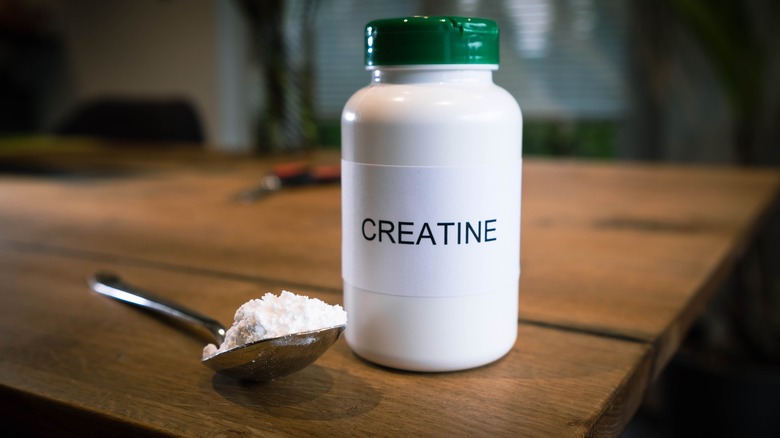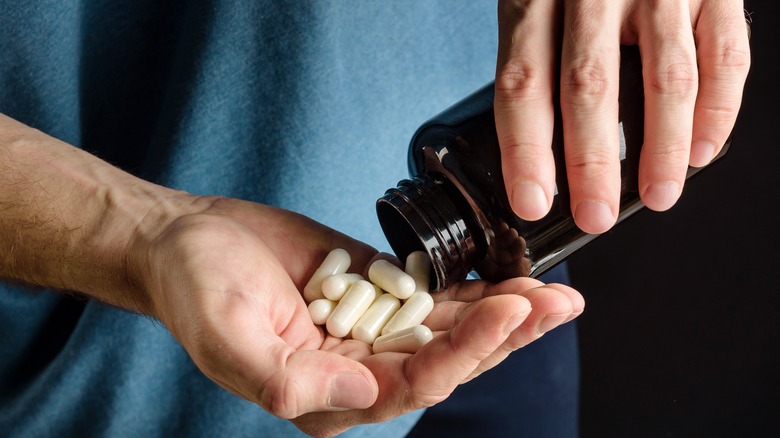Can You Take Too Much Creatine?
One of the most popular supplements on the market today is creatine, thought to increase muscle mass, build strength, and help the muscles recover quickly during exercise (per WebMD). Creatine is a naturally-occurring compound within the body derived from the amino acids arginine, glycine, and methionine (via Healthline). The kidneys, liver, and pancreas produce 1 to 2 grams of creatine daily, which is then stored in the muscles for energy use. Seafood and red meat are good sources of creatine, but people can up their levels of it by taking oral supplements (via Mayo Clinic).
Creatine has been proven to provide many health benefits. In a 2007 review examining studies involving over 200 patients with muscular dystrophies, it was found that patients who supplemented with creatine showed an average 8.5% increase in muscle strength. Additionally, a 2019 animal study published in the Journal of Experimental Medicine determined that creatine helps power immune cells' fight against cancer. Not only that but creatine supplementation has been shown to boost brain function in vegetarians. A 2019 study found that vegetarian participants who took creatine supplements showed greater visual memory gains than the meat-eaters whose creatine levels were already elevated from their diet (via the American Physiological Society).
People take creatine as a dietary supplement to improve athletic performance, boost brain health, improve bone health, and more (per Mayo Clinic). But how safe is it and does it come with any side effects?
Side effects of increased creatine intake
Creatine is considered a safe supplement but taking too much of it can lead to undesirable side effects (via Healthline). The usual way athletes supplement with creatine is by following a "loading" protocol to fully saturate the muscles with it and experience the benefits quicker. Creatine loading can result in a significant body weight gain that comes from an increase in both muscle mass and water retention. The problem is that creatine loading, which involves taking 20–25 grams of creatine — more than the recommended maintenance dose — for 5-7 days can lead to stomach upset and bloating.
More serious, creatine might be unsafe for people with preexisting kidney problems (per Mayo Clinic). However, more research is needed to find out for sure. Also, taking creatine with more than 300 milligrams of caffeine per day could worsen the progression of pre-existing Parkinson's disease.
Generally, you don't need to worry about supplementing with creatine at appropriate doses for up to five years. But just know that taking more than the recommended maintenance dose offers little advantage, and may provide discomfort. According to experts at Healthline, once your body has reached its maximum creatine stores, excessive amounts will simply be eliminated through your urine.


